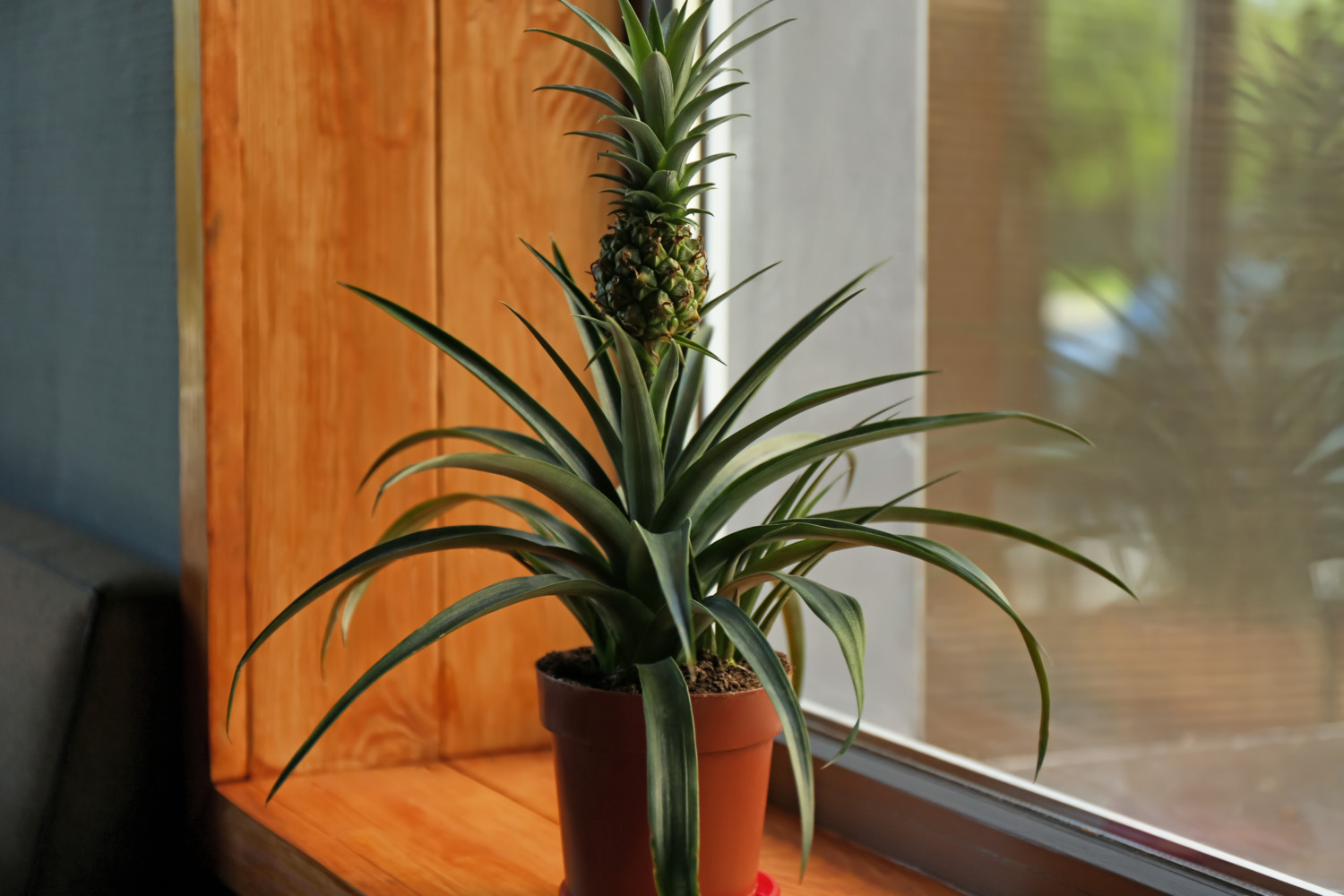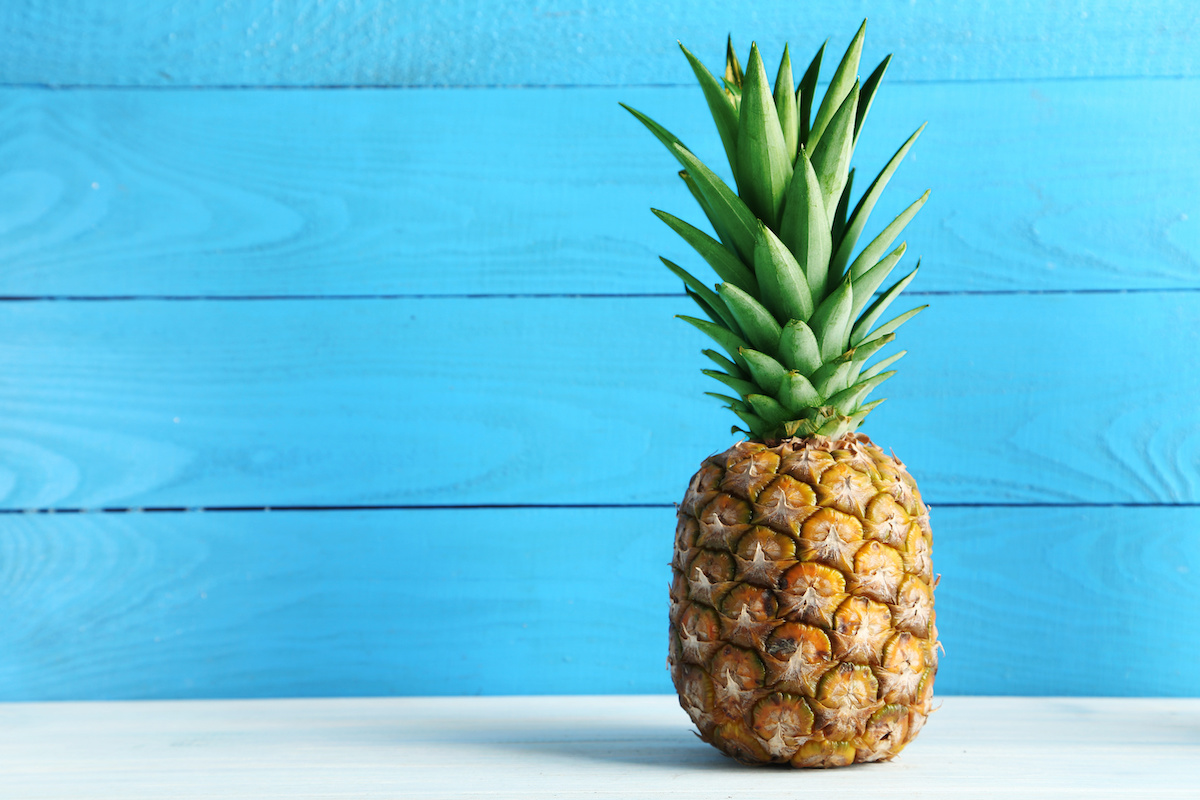The products and services mentioned below were selected independent of sales and advertising. However, Simplemost may receive a small commission from the purchase of any products or services through an affiliate link to the retailer's website.
You probably thought you needed a backyard in the tropics to grow pineapple at home, but it’s actually a lot more accessible than that. Most of us simply buy them at the store — that’s a lot quicker, by several years — but the growing process is just as fun as harvesting the fruit.
Pineapple is a type of bromeliad, which is a family of flowering plants that includes Spanish moss and succulents. Each pineapple plant only bears one fruit, but baby plants will sprout from the base. Once the pineapple plant’s fruit is past its prime, keep the parent plant and look for baby plants that sprout around the base. Each new baby plant will produce its own new pineapple if grown in the proper conditions.
Bearing fruit won’t happen overnight. Actually, it’ll take closer to three years before that happens, and it likely won’t be as large as any pineapple at your local market. However, it’ll still make for a great houseplant that’s full of texture, and a fun conversation piece to boot!

How To Grow Pineapple Plants
Bring home a pineapple from your local store that’s ripe with plenty of green leaves. Slice off the top, close to the crown. Be sure to trim any fruit still attached to the crown to prevent it from rotting later. Next, peel away some of the lower leaves from the base to expose part of the stem. If at all possible, expose the root primordia, which are the little bumps you see near the stem. (Those bumps are actually baby roots!)
Then, you’ll need to dry it out. Pineapples can rot easily, so let the cut area dry thoroughly, which may take up to a week, before planting. Don’t plant your pineapple until it’s dry to the touch.
Fill a 6- to 8-inch pot with a fast-draining container mix, just like what you’d use for succulent or cactus mix. You can also dip the plant root area in rooting hormone before potting, but this is completely optional. Gently place the stem about an inch deep in the potting mix and then pack the soil firmly around it to keep it upright. While you can root the plant in water, most experts suggest using soil for better results.

Keep the soil slightly damp until the roots develop, which might take up to two months. If you are concerned about moisture loss during the rooting process, you can place the plant in a large, clear plastic bag that you can loosely close. This keeps the humidity high while the roots form. Keep it in indirect, bright light. Too much direct sun can cause it to burn.
Once your plant starts to grow, you can re-pot it into a larger pot using the same mix. After about a year, you’ll probably need to re-pot it again in a larger container.
Care Tips
So now that you know you can grow pineapple without a private island oasis, it’s important to know what conditions they prefer. Native to South America (between Brazil and Paraguay, these plants are used to dry, well-drained tropical climates. Place them in bright, indirect sunlight, in a south-facing location, if possible. These plants thrive in warm, sunny conditions. Make sure the soil is dry between waterings and don’t water too much. Overwatering will do more harm than underwatering. Fun fact: Pineapple plants can absorb water through their leaves.

Do you want to grow pineapple at your house? Even if it’s not the most practical way to get the fruit, the process itself seems interesting to watch unfold. Plus, this plant will add interest to your indoor space as it develops.
This story originally appeared on Simplemost. Checkout Simplemost for additional stories.


